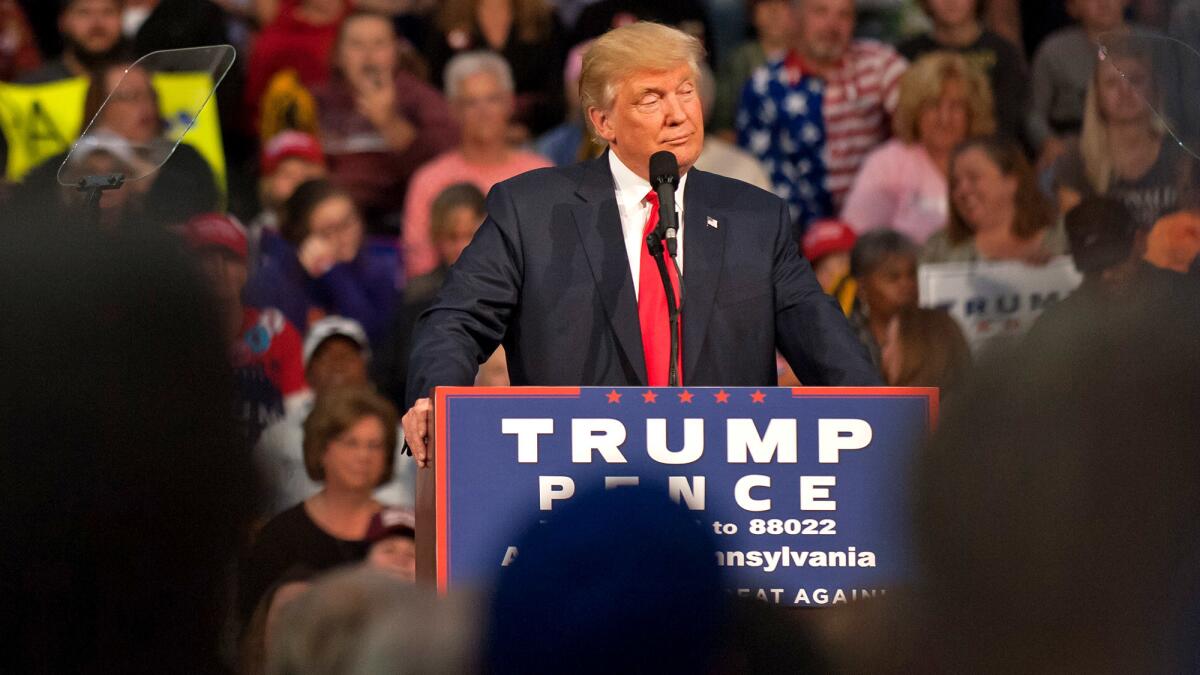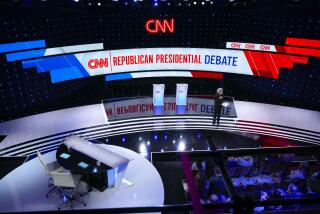What your boss can and can’t do when it comes to politics at work

Amid this year’s dark and divisive presidential election, the 2012 campaign can feel like a distant memory. But four years ago this month, a flurry of stories focused on corporate chief executives who were ominously telling their workers what might happen if President Obama won a second term. And Mitt Romney himself encouraged business owners to “make it very clear to your employees what you believe is in the best interest of your enterprise and therefore their job and their future in the upcoming elections.”
Although the 2016 campaign hasn’t brought the same kind of headlines, it’s not because the law has really changed. It is still legal for corporations to advocate for specific candidates when communicating with their rank-and-file employees. Private employers can distribute materials that tell all their workers the company’s positions on political issues. And if your boss were to send an email urging you to attend a rally for Donald Trump or Hillary Clinton this weekend, because electing his favorite candidate is “essential for the future of the company,” legal experts say he’d be within his rights.
Many workers may never hear a political pitch from their boss, but it can still be surprising to hear what workers and their employers can and can’t do when it comes to mixing politics and work. Six years after the Supreme Court’s Citizens United decision gave employers greater ability to express their political views and engage in unlimited “independent” political spending, experts say some legal questions remain unresolved.
In a private company, employees are often surprised to hear they don’t have the 1st Amendment rights they do outside the workplace, says Lindsay Burke, vice chair of the employment law practice at Covington & Burling in Washington. Companies can’t prohibit workers from talking about labor issues and working conditions during workplace breaks, so a cafeteria debate over Trump’s position on the minimum wage or water cooler chatter over Clinton’s parental leave policies should be protected. But employers can ban staffers from soliciting donations from their co-workers for political candidates. And technically, companies could ban other political speech in the workplace, even if few of them try to police it.
One type of campaign banter that should get more scrutiny, however, is anything that creates a harassing or discriminatory workplace, Burke says. In an election that’s lurched from controversial statements about one protected class after another, she’s gotten complaints from clients about workers making distasteful jokes about “building walls.”
Employers, meanwhile, have seen their rights grow when it comes to political speech, especially since the Citizens United decision expanded the 1st Amendment rights of corporations and unions. Corporations can now encourage rank-and-file employees to make contributions to candidates. The decision has also made corporations more comfortable with giving all employees “voter guides” that make their political positions clear, says Ken Gross, who leads the political law practice at Skadden Arps Slate Meagher & Flom in Washington.
When it comes to employment law, some states, such as California and Louisiana, offer workers protection from discrimination regarding their political views. But at the federal level, such protections are weak, says Debra Katz, a Washington labor lawyer who represents employees, meaning it’s possible workers could be terminated for objecting to the company’s political activities. Other than in certain states, there is a “failure of the law to provide any type of protection for political affiliation discrimination or refusal to engage in political activity that your employer asks you to engage in,” Katz says. “That is clear as a bell.”
Many point to high-profile decisions by the Federal Election Commission to close two complaints involving Murray Energy. The complaints alleged the Ohio coal mining company mandated that workers attend a Mitt Romney rally in 2012 — images of miners standing behind the shirt-sleeved GOP nominee were later used in Romney advertisements — as well as that the company pressured workers to make donations to the company’s political action committee, reimbursing them with bonuses.
In both cases, the commissioners deadlocked along party lines, closing the complaints without taking any action. (In a company statement emailed by a spokesperson, Murray Energy said it was pleased the FEC ruled there were “no issues.” The company and its CEO “consider these matters closed, and will continue to vigorously exercise their rights to participate in the political process as the law allows.”)
A 2015 survey of about 1,000 U.S. employees conducted by a Harvard researcher found that 25% said they experienced some kind of political message from their employer, ranging from simple voter registration efforts at work to messages about political candidates. Seven percent of the respondents said they felt these messages were “somewhat coercive” and another 7% said “strongly coercive.”
Yet others say the risk of behavior like the kind described in the Murray complaints is quite low. Gross, whose practice counsels a few hundred large publicly traded companies on election issues, says he doesn’t see clients testing those gray areas. “I have to say the Citizens United impact has been minimal,” he says, noting clients are “not that adventuresome.”
“It just doesn’t go over well in the workplace, to really be pushing hard for one candidate or the other,” he says. “It can backfire and it can be bad business.”
Jena McGregor writes about leadership in the news for the Washington Post’s On Leadership section.






